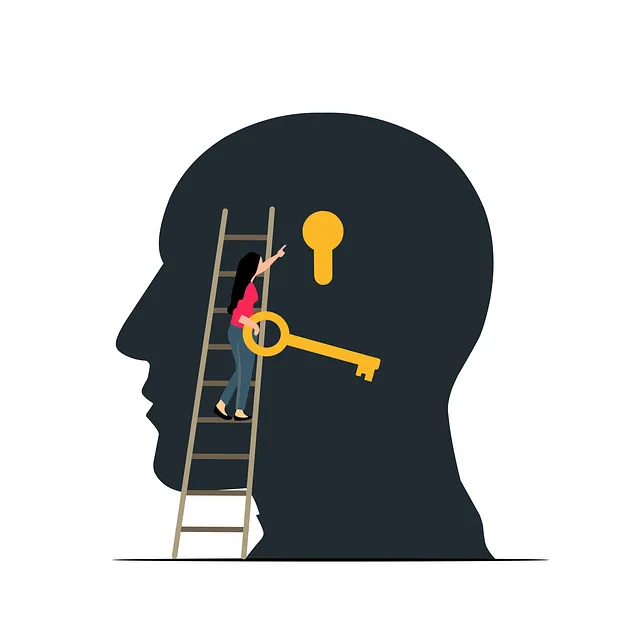Mental wellness apps, gaining prominence in the digital era, offer a multifaceted approach to supporting individuals' mental health. These apps, tailored by organizations like Kaiser Permanente's Longmont service, address critical issues like burnout prevention among healthcare providers through stress management tools, mindfulness exercises, and community support groups. The Kaiser Permanente behavioral health phone line caters to Longmont residents' mental wellness needs, providing personalized guidance and resources. With a focus on accessibility and user-centric design, these apps aim to fill gaps in traditional care, offering cost-effective solutions for mood tracking and risk mitigation. By combining psychological insights with technology, they empower users and promote mental well-being.
In today’s digital age, mental wellness app development is revolutionizing access to care. This comprehensive guide, “Understanding Mental Wellness App Development,” explores strategies for creating engaging and effective platforms that cater to growing demand for digital solutions. From identifying market needs through best practices for implementation, this article provides insights informed by Kaiser Permanente Behavioral Health Services’ Longmont outreach—including their dedicated phone number for behavioral health support.
- Understanding Mental Wellness App Development: A Comprehensive Guide
- Kaiser Permanente Behavioral Health Services: Phone Number and Longmont Outreach
- Market Needs and Gaps: Identifying the Demand for Digital Mental Health Solutions
- Designing User-Centric Apps: Strategies for Engaging and Effective Platforms
- Implementation and Success: Best Practices for Launching a Mental Wellness App
Understanding Mental Wellness App Development: A Comprehensive Guide

Mental wellness app development is a comprehensive process that involves understanding the nuances of human psychology and integrating it with technological advancements. These apps aim to support individuals in managing their mental health, offering various tools for stress management, anxiety relief, and burnout prevention. In today’s digital age, where Burnout Prevention has become a pressing concern, especially among healthcare providers as highlighted by the Kaiser Permanente behavioral health phone number Longmont, such applications play a pivotal role.
By leveraging technology, developers create accessible resources that can enhance traditional therapy methods and cater to diverse user needs. Incorporating features like mindfulness exercises, mood tracking, and community support groups, these apps empower users to take control of their mental wellness. Moreover, they offer practical Burnout Prevention Strategies for Healthcare Providers, ensuring they have access to tools that promote self-care alongside their patient care responsibilities. Stress Management Workshops Organization can also benefit from app-based solutions to educate and engage participants in learning effective stress management techniques.
Kaiser Permanente Behavioral Health Services: Phone Number and Longmont Outreach

Kaiser Permanente Behavioral Health Services offers a dedicated support system for those seeking mental wellness assistance. To reach their specialized team, individuals can dial the Kaiser Permanente behavioral health phone number for personalized guidance. This initiative is particularly notable in Longmont, where they’ve implemented outreach programs to cater to the community’s mental health needs.
The organization provides various resources, including Stress Management Workshops Organization, designed to equip individuals with effective coping strategies. By combining these workshops with their accessible phone support, Kaiser Permanente fosters an inclusive environment for mental wellness promotion. Moreover, their commitment extends to Risk Management Planning for Mental Health Professionals, ensuring practitioners have the tools to navigate complex cases effectively.
Market Needs and Gaps: Identifying the Demand for Digital Mental Health Solutions

In today’s digital age, there is a growing demand for accessible and convenient mental health solutions. This shift is evident in the increasing search for online resources and applications aimed at improving mental wellness. Many individuals, especially those in remote areas or with limited access to traditional healthcare services, are turning to digital platforms as their primary source of support. The Kaiser Permanente behavioral health phone number in Longmont serves as a testament to this trend, highlighting the need for flexible and user-friendly options for managing mental health.
The market for mental wellness apps presents numerous opportunities to fill gaps in care. Traditional behavioral healthcare often involves extensive waiting times, high costs, and geographical constraints. Digital solutions offer a promising alternative by providing accessible and cost-effective resources for mood management and risk mitigation. This shift is not just a trend but a necessary step towards improving mental health policy and advocacy, ensuring that professionals can efficiently manage their patients’ needs while navigating complex risk management planning.
Designing User-Centric Apps: Strategies for Engaging and Effective Platforms

In designing user-centric mental wellness apps, the focus should be on creating platforms that engage users effectively and cater to their unique needs. This involves understanding the target audience, such as individuals seeking self-esteem improvement or those dealing with mental illness stigma reduction efforts. Apps like those offered by Kaiser Permanente behavioral health phone number Longmont prioritize personalization and accessibility. By incorporating features like customizable dashboards, interactive tools for tracking progress, and crisis intervention guidance, these apps foster a sense of ownership and empowerment among users.
Effective engagement strategies include gamification elements that motivate users to consistently interact with the app. Additionally, integrating mental wellness practices such as mindfulness exercises, cognitive-behavioral techniques, and peer support communities can enhance user experience. These features not only promote mental health awareness but also provide practical tools for managing symptoms and improving overall well-being.
Implementation and Success: Best Practices for Launching a Mental Wellness App

The successful launch of a mental wellness app requires strategic implementation and a deep understanding of its target audience. For users seeking support, like those reaching out to the Kaiser Permanente behavioral health phone number in Longmont, an app can be a powerful tool for self-care. Begin by focusing on user experience (UX) design that is intuitive and accessible. Simplify navigation and ensure compatibility across various devices to cater to diverse user preferences. Integrate features such as Mental Wellness Journaling Exercise Guidance to encourage users’ active participation and track their progress over time.
Leverage the power of Public Awareness Campaigns Development to educate users on mental health, breaking down stigma and encouraging early intervention. Collaborate with mental health experts to design evidence-based programs that align with recognized therapeutic practices. Regularly update content to keep users engaged and ensure the app remains relevant in a rapidly evolving digital landscape. By combining these best practices, developers can create a valuable resource for mental wellness, catering to individuals seeking support from their homes in Longmont or beyond.
Mental wellness app development is transforming access to digital mental health solutions, addressing market needs identified by organizations like Kaiser Permanente Behavioral Health Services in Longmont. By designing user-centric apps that engage and effectively support users, developers can contribute to a crucial shift in behavioral health care. Following best practices for implementation ensures success, making these applications valuable tools in managing mental wellness. Remember that, with the right approach, mental wellness apps have the potential to revolutionize care and reach those who need it most.






